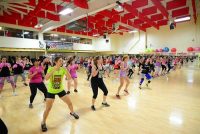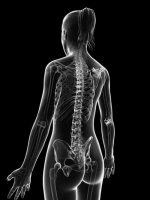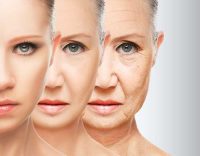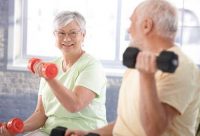
What Happens to Your Immune System as You Age?
Your immune system never sleeps – nor should it. You depend on it to protect you against threats, like bacteria, viruses, and even cancer. Have you ever wondered how it changes with age?

Your immune system never sleeps – nor should it. You depend on it to protect you against threats, like bacteria, viruses, and even cancer. Have you ever wondered how it changes with age?

Aging starts inside your cells, long before it’s manifest on the surface. You can’t completely stop the aging process but there’s evidence that exercise may slow cellular aging. Find out how.

You may have noticed that your bottom line isn’t as perky as it once was. Buttocks tend to become flatter with age. Read on and find out why this happens and what you can do about it.

Vitamin D – you need it for healthy bones, for strong muscles, and a healthy immune system but a significant number of people have a vitamin d deficiency. How about you? Here are 5 factors that can reduce your vitamin D level.

Aging muscles? Yes, they age along with the rest of you – but how? This article looks at the three main things that happen to your muscles as you enter the second half of life – and what you can do to prevent these changes.

It’s no secret that people lose aerobic capacity and exercise endurance with age, especially those who don’t exercise – but have you ever wondered why? This article discusses why and how much is preventable with training.

Lots of changes happen as a result of the aging process. Not only do we lose muscle strength and stamina but we become less powerful. Fortunately, a well-rounded fitness program significantly slows this process. Here are four areas where changes take place and how you can address them through exercise.

Your spine – it runs right down the middle of your back and helps protect the nerves that connect your brain to the rest of your body. Keeping it healthy should be a priority. In this article, you’ll learn how spinal health changes with age and tips for keeping your spine healthy.

Aging is something most people worry about to some degree. Most people think they’re old when they reach a certain chronological age, but a new study shows why the age on your birth certificate doesn’t always mean what you think it does. What counts is your biological age. Find out why.

Do protein needs change with age? According to a new study they do. To build lean body mass and maintain the muscle you have, you may need to increase your protein intake as you grow older due to a problem called anabolic resistance. Find out what this new research shows.

No one wants to become frail as they age, but some adults begin a downward decline into frailty in their mid-sixties. What causes frailty in older adults and what can you do to prevent it? Find out what research shows about staying functional as you age.

Exercise helps lower the risk for a variety of age-related health problems. Plus, it helps you stay functionally fit and resistant to falls. That’s why you should keep doing it! This article discusses strategies for staying fit and modifying your fitness routine as you age.